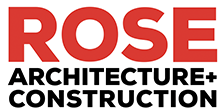Whether you have a very strong idea of the scope and design of your potential building project or have very little idea of what it could be, you should consider a feasibility study. These assessments help determine whether a project makes sense to move forward with or if some items need revisiting. No matter the size of your project, a feasibility study can save you time and money. Rather than diving into the deep end of unknown waters, a feasibility study allows you to test out the waters before you invest any significant time and money into your potential project. Read on to learn more about how feasibility studies can guide decision making for your project in a number of ways.
What is a feasibility study?
A feasibility study is an assessment of all the important details of a project. At its core, a feasibility study asks important questions such as “what” and “why”. This helps set the direction of the project and becomes the standard for project members to reference during the process.
Why should I consider a feasibility study for my project?
Feasibility studies can provide a clear outline of a project’s goals as well as the most efficient way to achieve them. This can be extremely helpful for clients who only have a vague idea of what they want, or when there are many competing priorities.
But even if you already have a clear idea of why you’re constructing a space, do you know if your plan is legal? Do you know if your plan is economically realistic? Do you know what design challenges your site presents?
If your project plan cannot fully answer these questions, then you may encounter issues along the process. A feasibility study helps to minimize risk before fully investing your valuable time, money, and resources into a project.
What are the steps for conducting a feasibility study?
- Defining the project’s goal: Feasibility studies often begin with asking the purpose of the project. Defining a clear project goal and design intent helps everyone involved with the project to stay on track during the project’s process.
- Research: This phase includes gathering information on existing property / building conditions, conducting code and zoning research, and more. Once this information is compiled, project designers can analyze and project this information on to your specific site and provide a generalization of the buildable area allowed based on the parameters discovered during their research. This step is often the biggest component of feasibility studies conducted for our clients.
- Cost Estimation: This phase is a quick estimation of project costs based on the preliminary research in the previous two steps. This can help get a general idea of costs before furthering the design and getting bids after construction documents are completed further down the line.
Are you ready to streamline your next project? Rose Architecture + Construction can conduct a feasibility study for you. Contact us to receive expert consultation on architecture, construction, design and more.
